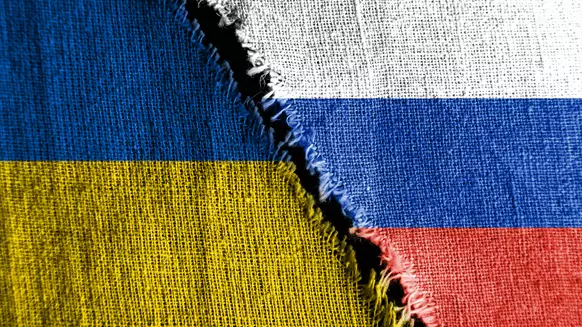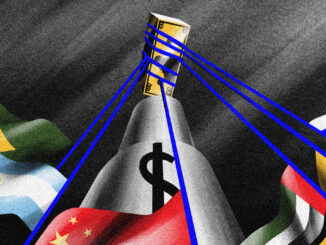
If Russia had not invaded Ukraine, crude oil prices would be well below $100 per barrel now.
That’s what analysts at Standard Chartered think, according to a new report by the company, which outlined that the war is adding around $20 per barrel to prices.
“To continue to support prices towards the top of the recent range or above it, the threat to Russia’s exports must avoid weakening significantly,” Standard Chartered analysts stated in the report, which was sent to Rigzone recently.
“The trend does not necessarily have to be towards greater and swifter export losses, but it should not be towards greater than expected flows and slower than expected declines,” the analysts added in the report.
“This suggests that the current intra-EU negotiations on the exact timetable and nature of oil sanctions against Russia are important for market sentiment. If the exemptions given appear too generous, and worst of all if no consensus can be built to allow a cross-EU approach, the support for higher prices is likely to weaken significantly,” the analysts continued.
In the report, the analysts highlighted that they did not think a failure to agree EU sanctions would necessarily lead to more Russian oil being available.
“Individual EU country actions are likely to keep flows from Russia low and the countries asking for exemptions are relatively small consumers,” the analysts stated in the report.
“Further, we think that if the sanctions package were to be weakened significantly, alternative mechanisms such as a tariff or a minimum price for Russian oil would keep the flow suppressed,” the analysts added.
“A more significant threat to prices would emerge if market consensus became concerned that, while inventories are chronically low and there are significant dislocations in key oil product markets, the crude oil market would be relatively balanced in terms of supply and demand flows even if Russian exports fell sharply,” the analysts went on to state.
Oil soared past $100 per barrel for the first time in years back in February as Russian forces escalated a conflict with Ukraine. Since then, the price of Brent has fluctuated, closing at a high of $127.98 per barrel and a low of $98.02 per barrel. At the time of writing, the price of Brent was trading at $108.61 per barrel.
EU Russia Oil Sanctions
Fitch Solutions Country Risk & Industry Research recently revealed that it believes proposals for a sixth round of sanctions on Russia by the European Union, which include the phase out of Russian crude oil and oil products by the end of 2022, will pass with some amendments and exemption clauses for certain member states.
In a statement sent to Rigzone, Rystad Energy’s head of oil market research, Bjørnar Tonhaugen outlined that it seemed clear to the company that the EU will act and impose an oil embargo, with certain exemptions made for the land-locked countries of Hungary, Slovakia and Czech Republic.
In a speech at the EP Plenary on May 4, European Commission President Ursula von der Leyen highlighted a proposal for a ban on Russian oil.
“This will be a complete import ban on all Russian oil, seaborne and pipeline, crude and refined,” Leyen said in the speech.
“We will make sure that we phase out Russian oil in an orderly fashion, in a way that allows us and our partners to secure alternative supply routes and minimizes the impact on global markets. This is why we will phase out Russian supply of crude oil within six months and refined products by the end of the year,” Leyen added in the speech.
“Thus, we maximize pressure on Russia, while at the same time minimizing collateral damage to us and our partners around the globe. Because to help Ukraine, our own economy has to remain strong,” Leyen continued.
Source: Rigzone.com







